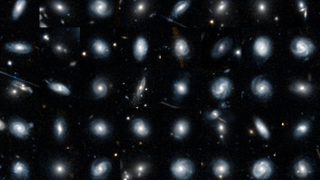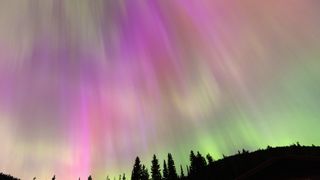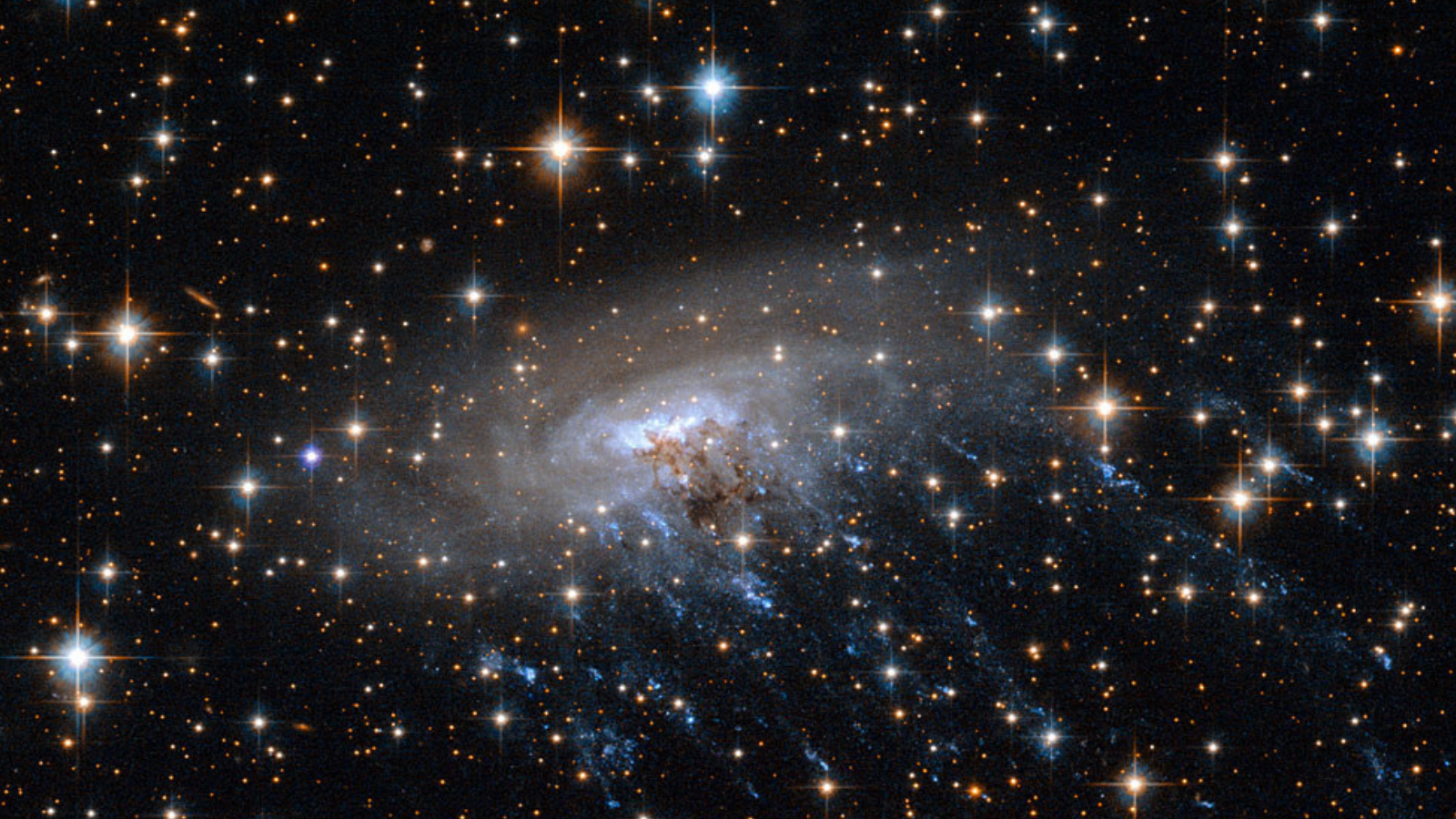Space.com contributing writer Stefanie Waldek is a self-taught space nerd and aviation geek who is passionate about all things spaceflight and astronomy. With a background in travel and design journalism, as well as a Bachelor of Arts degree from New York University, she specializes in the budding space tourism industry and Earth-based astrotourism. In her free time, you can find her watching rocket launches or looking up at the stars, wondering what is out there. Learn more about her work at www.stefaniewaldek.com.
Latest articles by Stefanie Waldek
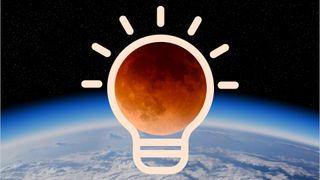
What do lunar eclipses teach us about Earth?
By Stefanie Waldek last updated
For starters, they taught us that Earth is round
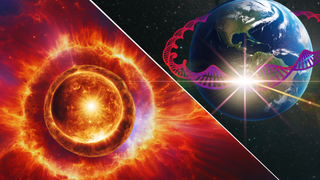
DNA-busting radiation from star-killing supernova could have influenced evolution on Earth
By Stefanie Waldek published
A distant star-killing supernova could have bombarded Earth with radiation strong enough to shift the course of evolution.
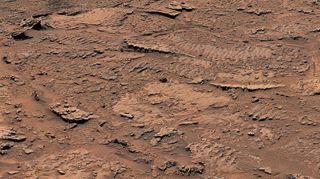
NASA's Curiosity Mars rover discovers evidence of ripples from an ancient Red Planet lake (images)
By Stefanie Waldek published
Rippled textures in a shallow lake bed on Mars indicate that ice-free liquid water once pooled here.
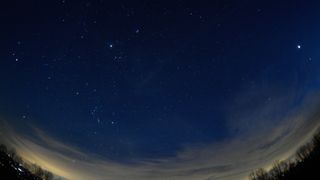
7 planets are aligned in the night sky right now. But what's that mean for science?
By Stefanie Waldek published
Not much, unless we're talking about spacecraft.
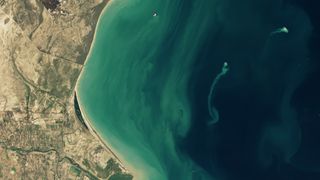
Satellites watch 'ghost island' solidify in the Caspian Sea before disappearing (photos)
By Stefanie Waldek published
The Kumani Bank mud volcano in the Caspian Sea created an island in early 2023 that had almost disappeared by the end of 2024, according to Landsate satellite imagery.
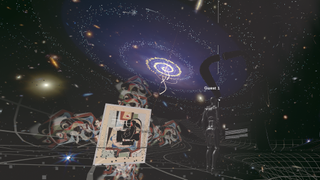
Step inside a virtual reality art piece inspired by the James Webb Space Telescope
By Stefanie Waldek published
Ashley Zelinskie's VR artwork Twin Quasar was inspired by the iconic deep-space image from the James Webb Space Telescope that introduced a new audience to gravitational lensing.
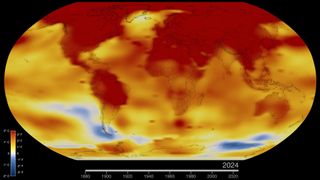
Our warming Earth: 2024 was hottest year on record, NASA says
By Stefanie Waldek published
2024 was the warmest year on record, according to NASA data. The global average temperature was 2.3 degrees Fahrenheit above the mid-20th-century baseline.
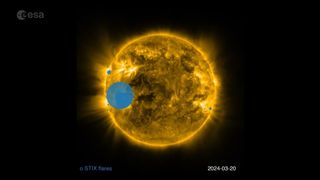
Scientists turn 3 years' worth of solar flares into audible sound (video)
By Stefanie Waldek published
The European Space Agency has released an audio-visual representation of solar activity over the last three years, using data from the Solar Orbiter probe.
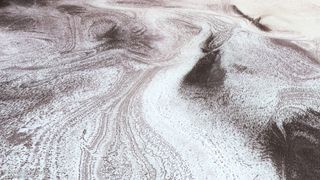
Mars orbiters witness a 'winter wonderland' on the Red Planet (photos)
By Stefanie Waldek published
Snow dots the Martian landscape in these images from ESA's Mars Express orbiter and NASA's Mars Reconnaissance Orbiter.
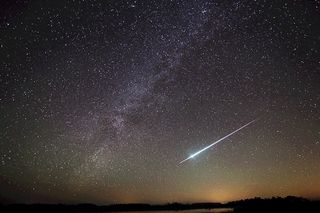
The Ursid meteor shower peaks this weekend. Here's what to expect from the final 'shooting stars' of 2024
By Stefanie Waldek published
The last meteor shower of the year peaks in the early morning hours of Dec. 22.
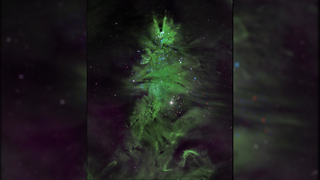
NASA space telescopes give Christmas Tree Cluster a festive makeover (photos)
By Stefanie Waldek published
The James Webb Space Telescope used a galaxy as a cosmic magnifying glass to find transient objects in the "Christmas Tree" cluster, a Winter Wonderland of even more galaxies.

NASA astronaut uses homemade star tracker to take incredible deep space photo from ISS
By Stefanie Waldek published
NASA astronaut Don Pettit's latest photography from the International Space Station showcases not only his visual prowess, but also his engineering skills.
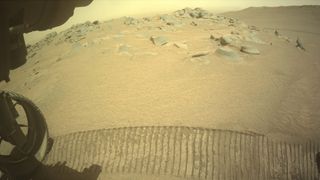
Mars rover Perseverance sends home postcard from scenic 'Pico Turquino' (photo)
By Stefanie Waldek published
After an arduous ascent to the rim of Mars' Jezero Crater, NASA's Perseverance rover is doing a little sightseeing.
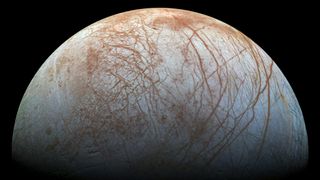
Explore Jupiter's icy ocean moon Europa in NASA virtual tour (photos)
By Stefanie Waldek published
Thanks to images from various NASA spacecraft, we can get an up-close look at the Jupiter ocean moon Europa long before the agency's Europa Clipper probe arrives.
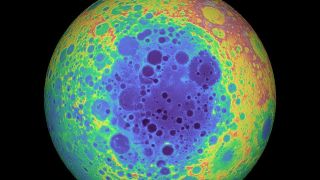
Scientists have dated the moon's oldest, and largest, impact site
By Stefanie Waldek published
The moon has been bombarded by asteroids and comets for more than 4.32 billion years.
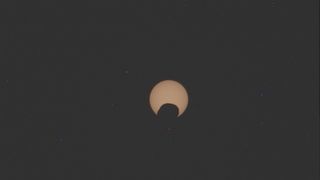
Perseverance rover watches a solar eclipse on Mars (photos)
By Stefanie Waldek published
On Sept. 30, NASA's Perseverance rover turned its eyes toward the sky and photographed a solar eclipse from Mars, capturing the tiny moon Phobos as it transited the sun.
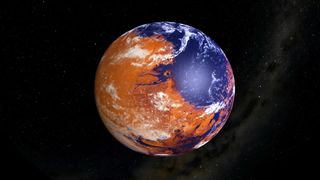
How did Mars turn into an uninhabitable desert? Curiosity rover rock samples may have answers
By Stefanie Waldek published
NASA's Curiosity rover has new insights into how Mars might have changed from a potentially habitable, water-rich planet to an absolutely uninhabitable desert.
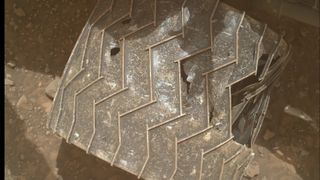
Curiosity Mars rover's wheels are more battered than ever — but they still work
By Stefanie Waldek published
The latest photo of Curiosity's wheels shows new — but not debilitating — damage.
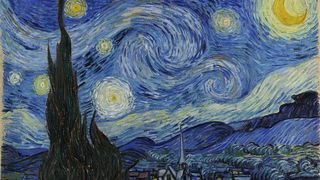
Van Gogh's 'Starry Night' surprisingly adheres to the laws of physics, scientists find
By Stefanie Waldek published
The artist's work demonstrates an innate understanding of Kolmogorov's theory of turbulence.
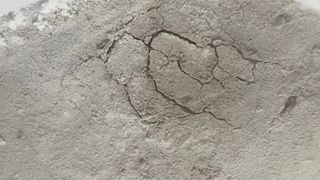
NASA scientists solve mystery of curious 'spiders' on Mars
By Stefanie Waldek published
Scientists at NASA's Jet Propulsion Laboratory have recreated spider-like araneiform terrain, a geologic formation found on Mars, in a lab on Earth.
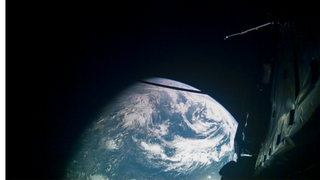
ESA's JUICE spacecraft confirmed Earth is habitable. Here's why
By Stefanie Waldek published
JUICE successfully identified water and the building blocks of life in Earth's atmosphere. In doing so, the probe headed for Jupiter's moons confirmed that its instruments are working properly.
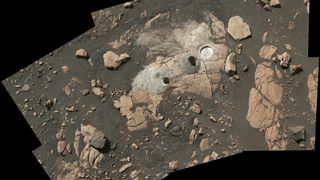
Mars rock samples show signs of water in Jezero Crater — could life have once existed there?
By Stefanie Waldek published
NASA's Perseverance rover didn't find organic matter within the rocks, but scientists will keep looking.
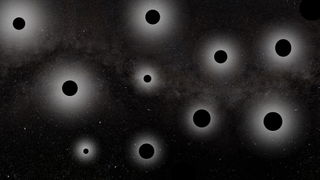
Help scientists find new black holes with this free smartphone app
By Stefanie Waldek published
Developed by the Dutch Black Hole Consortium, the Black Hole Finder app allows the public to help sort through thousands of images to identify potential targets of interest.
Breaking space news, the latest updates on rocket launches, skywatching events and more!

